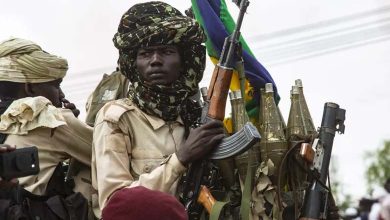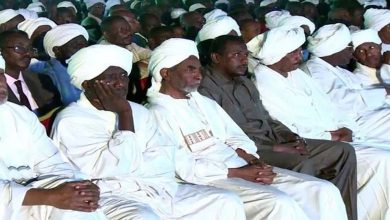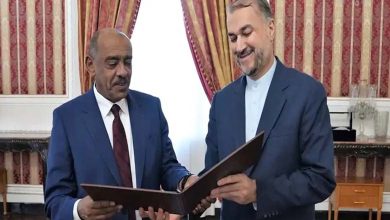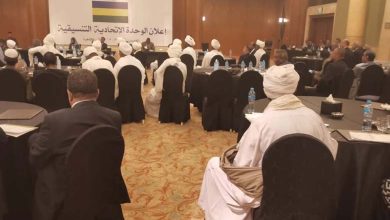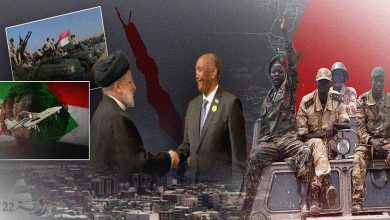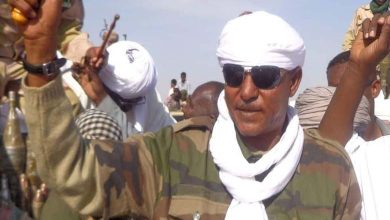Yemen: Houthi’s threats to oil installations revealed the terror of its militia

In response to the Houthi militia’s threats, the Yemeni government considered the militia’s threats against oil and shipping companies illegal and called for coordination to confront them. This comes after the Houthi militia declared the Red Sea and the Arabian Sea a military zone and threatened to target commercial ships, fuel tankers, and foreign companies operating in Yemen. The Yemeni government called on “companies and shipping agencies to continue their activities and not to pay attention to these practices and the illegal memos issued by representatives of the Houthi coup militia” supported by the Iranian regime, according to separate statements issued by the Yemeni Ministry of Transport and the Ministry of Oil and Minerals. The Yemeni Ministry of Transportation called on “maritime agencies to refrain from dealing and communicating in any way with those illegal parties affiliated to the Houthi militias in Sanaa that impersonate the legitimate government bodies and ministries”.
Houthi threats
The Yemeni Ministry of Oil and Minerals said in a statement, “The messages issued by the Houthi militia, which include threats against companies working in the oil sectors, reveal the terrorist reality of this rebel militia against local will and international resolutions”. The statement called on production and exploration companies to “pay no attention to what is reported about a terrorist coup militia that is outside the law and order”. It also said that “they will provide oil and mining companies with all forms of support and assistance, and will overcome the difficulties they face in continuing their work in accordance with agreements and contracts signed with the Yemeni government”.
Earlier, Yemeni Minister of Information Muammar Al-Eryani said: “The dangerous declaration issued by Houthi to designate the Red Sea, Bab Al-Mandab and the Arabian Sea as a military operations zone, and his threat to companies reveals his reality as a terrorist “militia” that does not respect international laws and conventions.” The Yemeni official called on the international community, the United Nations and the permanent members of the Security Council to take a clear position on this serious threat and carry out its legal responsibilities in confronting the terrorist activities of the Iranian regime and its Houthi tool, which has become a serious threat to regional and international peace and security.”
Houthi leader terrorism
The Houthi militias’ threats are the first since the resumption of oil exports in 2018, and came in response to the loss of the oil and gas-rich Shabwah province by the Brotherhood last month. Experts considered this to be part of hidden cooperation and sharing of wealth among terrorist organizations. The Houthi militias’ threats were launched along with a Brotherhood rumor campaign targeting mainly the strategic Bal’haf facility, an export port and a production station, whose annual production is 6.7 million tons of liquefied gas, and has stopped since the Houthi militias’ coup at the end of 2014. The systematic Houthi threats were issued by senior Houthi leaders, including militia leader Abdul-Malik Al-Houthi, whose military spokesman Yahya Saree was forced to leave two days ago to accuse foreign companies of looting wealth, and to take the threats seriously if the truce extension failed. This was preceded by prominent leaders Mohammed Abdul-Salam, Mohammed Ali Al-Houthi, Hussein Al-Ezzi, as well as the Political Council. Meanwhile, the unrecognized coup government, through the so-called Minister of Oil, claimed to address the companies to supply oil revenues to the Central Bank of Al-Houthi in Sana’a.
Houthi and Brotherhood
Mervat Abdul Waseh, a Yemeni economic researcher, said the timing of the Houthi threats demonstrates the undeclared relationship between the Houthis and the Brotherhood. She said their actions are actually aimed at thwarting the Yemeni government’s efforts to operate sovereign and vital facilities such as Bal’haf, thus exacerbating the consequences of the war and its apparent negative effects on the level of the current economic collapse in Yemen. The Bal’haf facility is as strategic as the resources of Shabwah as a whole, she said, adding that the decision to operate it will only be made through the efforts of the Presidential Council to provide a secure environment for international partners, in addition to the approval of the French company Total to operate from Shabwah.
Observers believe that Houthi militias are trying to impose their conditions to extend the U.N. truce, especially the “salaries” they looted, in order to escape the popular vengeance. They are also preparing to impose an agreement to share oil revenues because they have missiles and marches capable of threatening oil installations.


